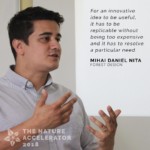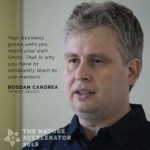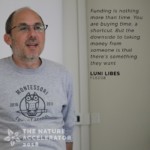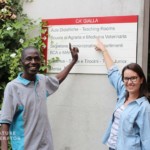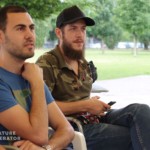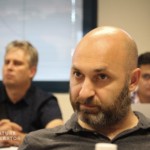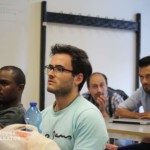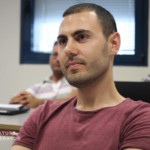Pitching
If we say “Pitch us your startup” what would you talk about? The mechanism behind your product or service? To what extent should it be technical? The milestones you have achieved so far? A story? A combination of all of the above?
How to combine or cut out all of the things you want to go on and on about comes down to remembering what the goal of the pitch is: not to give details but make people ask for details (Luni Libes, CEO Fledge). If you tell everything there is to know, investors will not have much to ask. That being said, a pitch should make clear what you’re selling.
But a pitch is not a business deck. If a pitch is successful, investors might ask for your business deck and further continue the talk. Instead, a pitch makes investors want to talk to you, as a person. Even if you have a great product or service, if the investors don’t like you, they may not want to invest in you.
By the end of the pitch, you will have an ask, presumably a certain sum of money. The danger in simply asking for, say, 200,000 euros, is that investors may say they will invest a part of that amount and ask you to come back once you have the rest. Not very helpful within the time period you may have wanted to operate. You therefore need to show why the investors need to invest now and what each amount of money means in terms of returns.
Last but not least, it makes a difference to mention how long your company has been running because people want to see it’s a company that’s been up and running, not just an idea.
Our experience
Luni Libes is continuing to coach our startups every day, during individual and group sessions. From big picture business strategies to small details, he supports our startups hands-on.
With our Forest Design and the Transilvanian University of Brasov partners
Bogdan Candrea and Mihai Nita specialize in digital forestry sector and exemplify how the private firm-university can work. Through natural bites, each shared his side of expertise and through individual appointments with the startups they advised our startups on a variety of matters, including innovation and business communication strategies as they too consider Forest Design as a startup, even if it may have been running for over a decade. For instance, what happens when you develop a product that the market is not yet ready for?
Our startup’s experience
“It’s a nice, positive way. The ECOSTAR team tries to give you input and feedback but not drowning you in the information. I can see the team gets well together and there’s a connection. It’s a great concept for startups that have not had such a training” says Claudia Reinthaler from Sintala design. “I really liked Luni’s feedback. He showed us a presentation type that I was not used to. I was used to traditional investor, market size kind of presentation, while this one is more compelling. In the end we will get more attention.” Edoardo Imparato from Crické.
Wrapping up Week 7 and looking ahead
Our startups finalize the acceleration program, taking full advantage of our mentor network to hone their knowledge and skills in the nature sector and business strategies. Next up, the Demo Day!
FIND OUT MORE
WEEK 1 ARTICLE: Why do we hack startup business model?
WEEK 2 ARTICLE: How do we analyze a startup market?
WEEK 3 ARTICLE: How can startups use ‘corporate culture’ to innovate and embrace disruption?
WEEK 4 ARTICLE: How can startups keep customers loyal?
WEEK 5 ARTICLE: Why should startups learn the language of financial planning and accounting?
WEEK 6 ARTICLE: How can startups rethink corporate communication?
Developed by ECOSTAR and powered by Fledge, the Nature-Accelerator is an intensive eight week acceleration programme for nature-based startups. As part of ECOSTAR initiative, Etifor Srl and the University of Padova, promote and manage the acceleration programme.



